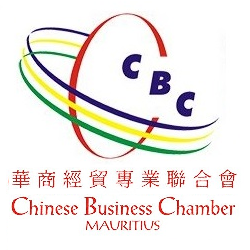Firing on All Cylinders to move up the Next Rung of the Development Ladder
The President of the Chinese Business Chamber, Mr. Lee Meng How Onsiong, says that it is encouraging to see that fiscal discipline with emphasis on growth and development, social sector improvement and public sector reform have been given priority in the Budget 2016/17 of the Minister of Finance.
The main objective of Budget is to set the country on the path of renewed growth, creating job opportunities (especially for the young unemployed) and thus avoiding the risk of Mauritius falling into the middle – income trap of low growth and associated rising inequality. To this end, Government is resorting to a mix of new and past instruments, including tax incentives to promote the development of new activities and encourage existing ones.
Mr. Philippe Lam, an economist and member of CBC added that based on the data given in the budget speech, Mauritius is doing fairly well but there is certainly room for improvement. Indeed, with GDP growth projected at 3.4 % in the financial year ending 30th June 2016, unemployment estimated to have fallen by about a full percentage point to reach 7.6 % for the first quarter of 2016, inflation forecast at under 1 % over the financial year 2015/16 and the overall balance of payments being in a surplus with the current account deficit as a percentage of GDP falling to 4.5 % during the last fiscal year, foreign exchange reserves available to cover 8.5 months of imports and the budget deficit contained at 3.5 % of GDP, the state of the country’s economy has been on the uptrend for the past year and a half. However, we cannot rest on our laurels as there are downside risks to the economy with the worsening global environment, especially in our major EU market and the U.K, in particular, since British voters decided that it was in their country’ s best interests to leave the EU.
Cocktail of Budgetary Measures
A series of measures have been announced to set the country on the trajectory of higher growth rate, especially driven by innovative activities like the setting up of oil refining facilities and storage activities in the coastal region of Albion. The Minister has also put emphasis on higher value – added activities such as gold refining, jewelry processing, provision of vault facilities, and the trading of precious metals on a new commodity exchange. These will widen the circle of business and employment opportunities in Mauritius. Given the growing importance of 3D printing, Government has decided to introduce this cutting – edge technology to enable the country to seize the opportunities created by the 4th Industrial Revolution.
The Return to a Full – Fledged System of Tax Incentives
This budget marks the return to a comprehensive system of tax incentives which were first used in the 60′ s in Mauritius to pioneer import – substitution activities and later on the Export Processing Zone activities which helped in the creation of full employment in the late 80’s. This marks a significant departure from the fiscal measures of the past decade when most economic activities were eventually treated on a more or less equal footing with profits being taxable at a flat rate of 15 %. Tax holiday of various durations will now be extended or made available for the first time for a number of activities. These include Asset and Fund Management activities, international law firms engaged in Global Advisory activities and, interestingly, even individuals investing USD 25 million will benefit from a 5 – year tax holiday .
Conclusion
Mr. Lee Meng How concluded that with less than two months since taking office, the new Minister of Finance can be said to have started to leave his personal mark on the economic history of Mauritius with a revamping of the system of incentives available for economic activities, the promotion of higher value added operations and those in tune with the 4th Industrial Revolution. The key and determining element will now be the successful implementation of all these measures. Only time will tell whether Mauritius will renew with the higher growth rates of the past to enable it to attain the status of high-income country, while at the same time ensuring that the fruits of development are equitably shared by one and all.



